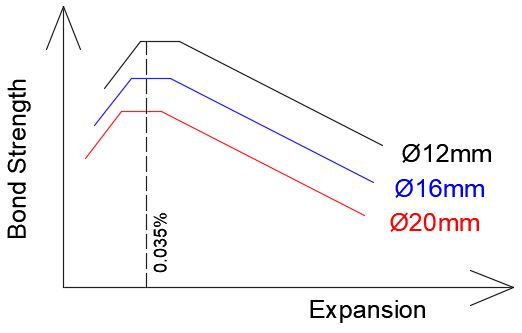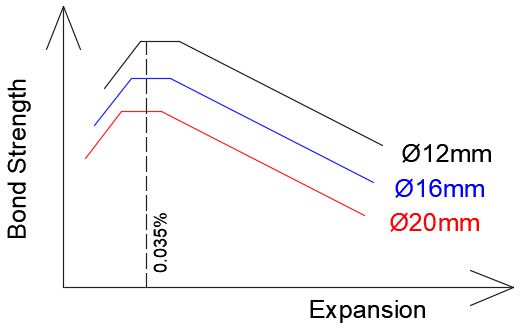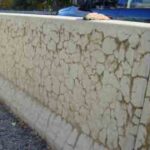Alkali Silica Reaction (ASR) has been found to deteriorate the bond between steel and concrete. This article will discuss if this is true.
What is Alkali Silica Reaction?
The Alkali Silica Reaction (ASR) is a chemical reaction that occurs between alkaline substances in cement and reactive silica found in some aggregates used in concrete. When water is present, this reaction produces a gel that can expand significantly over time. This expansion can lead to cracking and deterioration of concrete structures, compromising their integrity and strength.
Effect on bond strength due to ASR
The early study regarding effect of ASR on the bond strength was done by Chana (1989) in Britain from Transport and Road Research Laboratory. The experiment was extensive. The Na2eq was taken as 7 kg/m3 and conditioned at 38C. His report concluded that ASR can reduce bond strength of ribbed bars or plain bars in the cover region when link bars are not provided. In other cases he found increase in bond strength.[4] The tests were done for expansion of 4000 microns. The report concluded ASR do not have detrimental effect on bond strength when the link bars were provided
Li. et al. (2020) did pull out tests in an ASR accelerated specimens for steel with diameters of 12 mm, 16 mm, and 20mm. He found two things as follows:[1]
(a) that ASR expansion decreases with the increase of the rebar diameter and
(b) Nominal bond strength peaks at 14 days, at which the expansion is about 0.035%. After that, the nominal bond strength decreased near-linearly with the increment of the expansion. This is shown in the figure below.

Coupling with freezing and thawing (F/T)
Haddad (2007) did experiments on ASR specimens subjecting it to freezing and thawing.[2] They found significant losses in bond strength capacity reaching as high as 24%. However, they did not compare the effect by comparing with non-ASR specimen, hence, it makes it difficult to compare the result. Nevertheless, we know that bond strength degrades even in the absence of ASR hence, ASR should further reduce the bond stress.
This shortcoming was overcome by Takahashi (2019).[3] In the experiment, the compressive strength was measured. They did two interesting experiments.
(a) The specimen were first subjected to ASR followed by F/T and
(b) The specimen were first subjected to F/T after subjecting to ASR
They found that when specimen were subjected to ASR after F/T had higher strength compared to specimen subjected in opposite sequence.

Conclusion
It can be seen that, although, initially ASR was thought to have no detrimental effect on bond strength. Further study have indicated that bond can increase for lower expansion. But when expansion exceeds certain value, the bond can decrease significantly. If ASR is coupled with freeze and thaw, the bond reduction can be rapid.
References
[1] P. Li, N. Tan, X. An, K. Maekawa, and Z. Jiang, “Restraint Effect of Reinforcing Bar on ASR Expansion and Deterioration Characteristic of the Bond Behavior,” Journal of Advanced Concrete Technology, vol. 18, no. 4, pp. 192–210, 2020.
[2] R. H. Haddad and K. S. Numayr, “Effect of alkali-silica reaction and freezing and thawing action on concrete–steel bond,” Construction and Building Materials, vol. 21, no. 2, pp. 428–435, Feb. 2007, doi: 10.1016/j.conbuildmat.2005.07.012.
[3]Y. Takahashi, “Relationships between expansions and mechanical properties of concrete under coupled freeze-thaw cycles and alkali-silica reactions,” ResearchGate, Accessed: Sep. 26, 2019. [Online].
[4] P. S. Chana, “Bond strength of reinforcement in concrete affected by alkali silica reaction,” TRRL CONTRACTOR REPORT, no. CR 1, 1989, Accessed: Jul. 09, 2019. [Online]. Available: https://trid.trb.org/view/314058.






